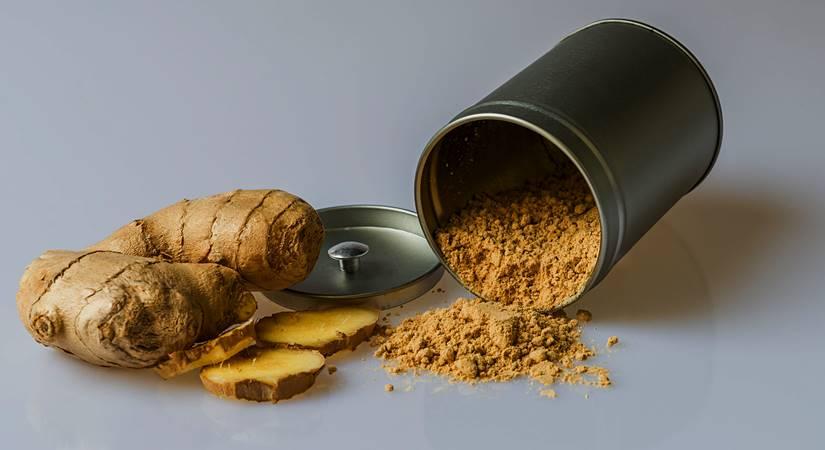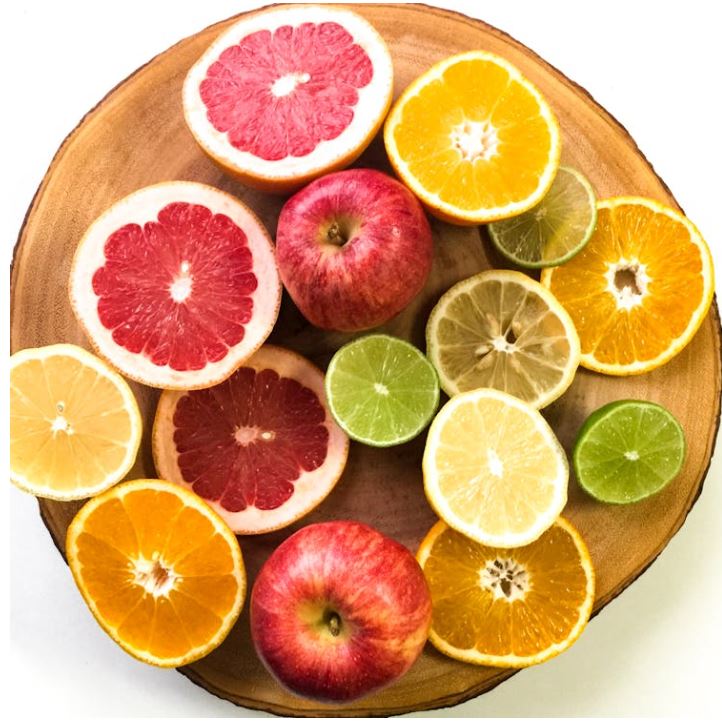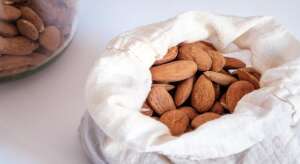Ginger is another herbal ingredient that is highly valued in ayurvedic medicines for cough and cold as it helps not just with phlegm reduction, but also with fighting infections and reducing inflammation…writes Sushma P S
Each year, that persistent winter cough seems to make an unwelcome return. The winter months bring about a surge in the common cold, and it’s almost expected that many individuals will grapple with its symptoms. The common cold, a mild viral infection, targets the nose, airways, throat, and sinuses, leading to manifestations like a congested or runny nose, sneezing, a sense of fatigue, a scratchy throat, and coughing. While there’s no definitive cure for the common cold, we’ve compiled a list of everyday foods, herbs, and home remedies that may help alleviate the symptoms of your winter cough.
Garlic: Embracing powerful antioxidant properties, garlic stands as a potential ally in warding off or shortening the duration of colds. Notably, studies reveal that incorporating a garlic supplement into your routine can lead to a remarkable 63% reduction in the frequency of colds. Beyond its impact on colds, garlic offers additional health perks, including the ability to lower blood pressure, enhance cholesterol levels, and contribute to the prevention of Alzheimer’s and dementia.
Ginger: Ginger is another herbal ingredient that is highly valued in ayurvedic medicines for cough and cold as it helps not just with phlegm reduction, but also with fighting infections and reducing inflammation. These anti-inflammatory and antimicrobial effects are linked to gingerols, the active components in ginger. Research shows that ginger and ginger extracts can work like a bronchodilator, relaxing the airway smooth muscle to reduce irritation, coughing, and breathlessness. Ginger can be used to prepare herbal teas along with honey or you can even drink the freshly extracted juice or chew on some ginger.
Tulsi: Tulsi, is an Ayurvedic herb that has been used for centuries in India for its vast array of health benefits. Tulsi is an expectorant, meaning it helps to expel mucus from the respiratory tract, making it an effective remedy for dry cough. In addition, tulsi is a natural antibacterial agent, helping to fight off infection and speed up the healing process.
Fruits and vegetables: While vitamin C may not possess the mythical powers once attributed to it in preventing colds, it can still play a supportive role when that unwelcome sniffle starts looming. Embrace the goodness of citrus fruits like oranges, grapefruits, lemons, or limes to fortify your immune system with this essential vitamin.
For those not keen on the tangy delights of citrus, fear not. Numerous other foods stand ready to deliver a robust dose of vitamin C:
Kiwi fruit
Strawberries
Broccoli
Red bell pepper
Brussels sprouts
Butternut
Cantaloupe
Cauliflower
Tomatoes
Onion juice: Onions are another staple in every Indian kitchen, making this a very convenient remedy.people don’t realize that onions don’t just add flavor to food, but can also be therapeutic. Studies show that onion extract has an anti-inflammatory effect and relaxes the trachea, which can reduce or stop coughing spasms. These benefits may be linked to sulfur compounds in onions. This value of onions as a dry cough remedy has long been recognized in Ayurved and it’s worth a try. You can crush and extract onion juice, mixing it with equal parts of honey.Most have a tablespoon of the mixture at least twice or thrice a day.
Honey: Research suggests that honey may offer relief from a persistent cough. In a 2021 review, scientists examined the impact of honey in treating coughs related to upper respiratory infections. The findings revealed that honey outperformed standard care, effectively suppressing coughs and reducing the need for antibiotics.
In another study comparing honey with dextromethorphan, a common cough suppressant, both were found effective in curbing coughs. One trial even indicated that honey scored slightly higher, while in another, it matched the efficacy of dextromethorphan.
To utilize this remedy, individuals can consume a spoonful of honey directly or incorporate it into a hot beverage, such as herbal tea.
Hot Fluids: Although current research is limited, an older study from 2008 suggests that consuming liquids at room temperature may help ease symptoms such as cough, runny nose, and sneezing. However, individuals with additional cold or flu symptoms may find more relief by opting for warm beverages. According to the same study, hot drinks can provide immediate relief for symptoms like sore throat, chills, and fatigue. The positive effects were noted to persist for a sustained period after finishing the hot beverage.
Hot beverages that can offer comfort include clear broths, herbal teas, decaffeinated black tea, warm water, and warm fruit juices.
Pumpkin Seeds: Pumpkin seeds are a rich source of zinc, a mineral essential for enhancing the function of white blood cells. These cells play a crucial role in combating pathogens such as the flu virus. You can enjoy pumpkin seeds by the handful or sprinkle them on salads to add a delightful crunch to your diet.
Turmeric: Turmeric milk stands out as a popular home remedy in India for various ailments, renowned for its effectiveness in treating sore throats and coughs. The key component in turmeric, Curcumin, imparts its yellow color and possesses potent anti-inflammatory properties. Turmeric has the capacity to enhance the immune system and stimulate antibody responses against infections. For expedited relief, consider adding black pepper to the turmeric mixture. This combination harnesses the therapeutic benefits of turmeric, offering a natural and soothing remedy for respiratory discomfort.
Pineapple: Surprisingly, pineapple proves to be an effective aid in alleviating coughs, thanks to the presence of bromelain, an enzyme with anti-inflammatory and mucolytic properties. Bromelain’s unique combination of attributes makes pineapple an excellent choice for promoting relief from coughs by aiding in the breakdown of mucus and reducing inflammation. Consider incorporating this tropical fruit into your diet for its natural and beneficial impact on respiratory comfort.
Banana Berry Smoothie: Introducing the Banana Berry Smoothie – A nutrient-packed blend that harnesses the goodness of ripe banana and mixed berries. Bananas, known for their richness in essential vitamins like vitamin C, vitamin B6, and potassium, play a vital role in supporting the immune system. Combined with antioxidant-rich berries, especially strawberries and blueberries, this smoothie offers a powerful dose of vitamin C and antioxidants. These elements contribute to reducing cough symptoms and enhancing overall immune function, making the Banana Berry Smoothie a delightful and healthful choice to fortify your well-being.
As we embrace these natural remedies to tackle the winter cough, it’s crucial to recognize that individual responses may vary. Consulting with a healthcare professional is advisable, especially if symptoms persist or worsen. While these home remedies offer potential relief, maintaining a balanced diet, staying hydrated, and practicing good hygiene are integral components of overall well-being. Embrace the nourishing power of nature’s ingredients to support your health, providing comfort and wellness during the chilly winter months.
ALSO READ-Diabetes Management in 2024













